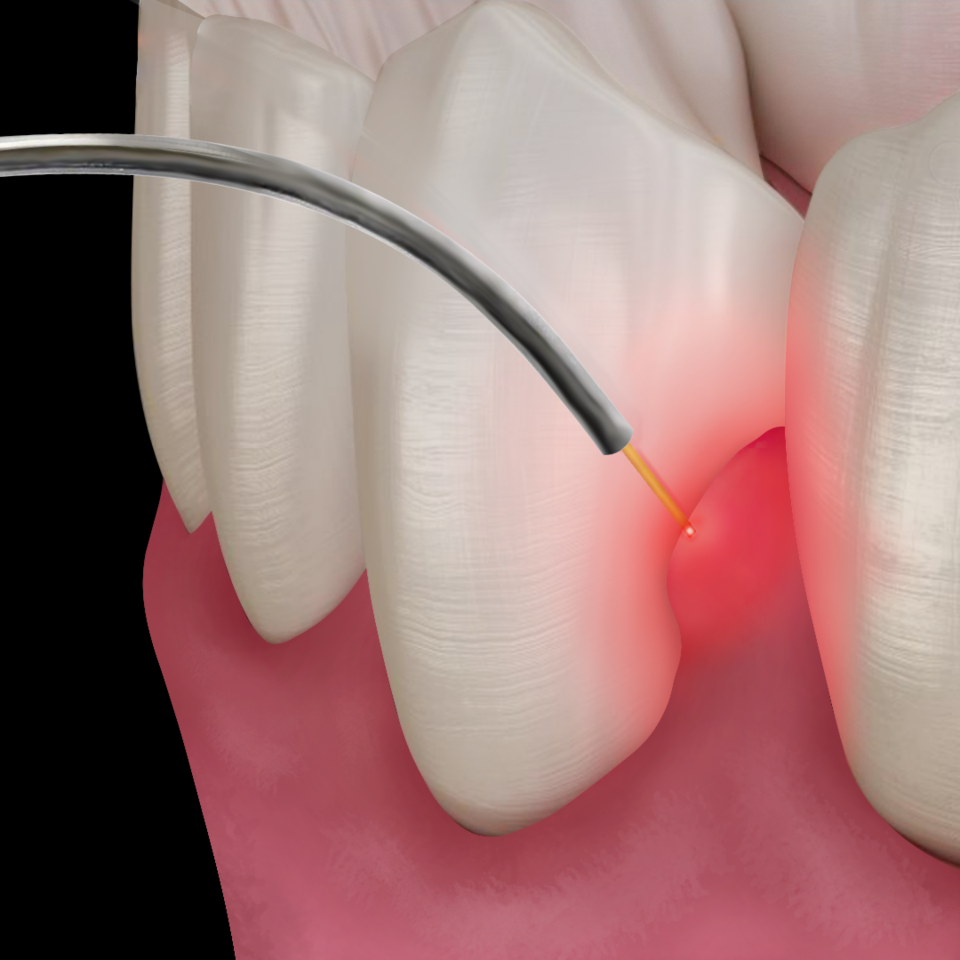Unless one experiences blatantly obvious or painful toothaches, many go about their lives thinking they have relatively good teeth. Even those whose parents were attentive to their need for braces or who schedule routine visits to the dentist every six months or have only had one or two fillings their whole life may not be aware that underlying conditions may be going on undetected, unbeknownst to them.
However, it only takes one visit to the dentist for a hygienist to potentially point out a common condition you might not otherwise have been aware of – deep gum pockets.
The frustrating part of this diagnosis is you could be doing everything right – flossing, brushing and all the regular habits that promote optimal dental health. Still, if left unaddressed, more serious courses of action, like surgery, cutting into the gums and shallowing out these pockets may be necessary.
So, why does this happen and is there a less invasive solution? Interestingly, Dr. Crapo of Dr. C Ross Crapo & Associates in Victoria sheds some light on possible avenues of treatment and a new cutting-edge technology that is changing the course of patient care for moderate to severe periodontal disease.
How habits impact health
For those who may have these concerns, Dr. Crapo confirms that, yes, there is something less invasive and very encouraging, and no, you aren’t alone.
“Recalcitrant, belligerent, recurring gum disease has many causative factors,” he explains. “The worst of these is genetic, which occurs in about 5% of the population. Folks with this problem are in the dental office every two to three months and have learned to use every tooth and gum cleaning apparatus known or they have lost a majority of their teeth.”
He continues, “Historically, it has been a losing battle with only fastidious care at home and the dental office slowing down the effects of the disease.
“Contributing to the disease are habits of smoking and alcohol consumption in excess (more than ten cigarettes a day and daily consumption of hard liquor), excessive refined carbs, dry mouth, mouth breathing, poor hygiene, and one that gets very little attention – a bad bite along with clenching and grinding one’s teeth day or night as well as functional grinding (excessive hard chewing of food in the presence of a bad bite),” he describes.
“These are a few factors that contribute to compromising your immune system, helping bacteria get a strangle-hold, thus producing inflammation that overcomes one’s healing defenses.”
Technology to enhance treatment

A relatively new answer to the less invasive treatment of this condition lies in a procedure called LANAP®, which stands for laser-assisted new attachment procedure.
In research and clinical demonstration (meaning testing as conducted using real people), this procedure:
- Kills bacteria to almost 100% in the pockets.
- Disinfects the root surfaces that have been coated with toxins from the bacteria and the death of white blood cells, scavenger cells of your body, biochemicals produced by your body and antibodies, to name a few.
- Removes selectively diseased gum tissue without cutting with a scalpel or need for stitches.
- Stimulates and regrows attachments to the tooth so deep pockets become shallow pockets that don’t bleed because of infection.
- Modifies the bite to reduce pressures that cause problems in the diseased/infected state and problems if left unattended during the healing/uninfected state.
The research shows actual regrowth of bone around patients’ roots or implants. However, only one laser frequency does this (1064 nm) and a strict protocol along with the laser energy is required.
This LANAP® procedure requires a special laser and very specific protocols. Dr. Crapo has been aware of lasers in dentistry for decades, but until now, has not seen what he believes to be the breakthrough technology for reattachment dentistry that regrows bone around the roots of teeth.
“Our office is grateful to have this technology,” he says. “The protocols are exacting for both the dentist and patient, but what a breakthrough!”
To schedule a consultation or learn more about the services offered by Dr. C Ross Crapo & Associates, visit drcrapo.com or call 778-410-2080.



